Recently, the founder of LBAI was invited to Communication University of China to give a distinguished lecture titled "Entering the AI Era," in which he deeply explored the commercial applications of AI and the path to personal growth. The lecture covered topics such as the application of AI technology in various fields and its future development direction, the role of perception and vision in biological evolution and artificial intelligence, as well as how to use AI in daily life and learning. The lecture attracted many teachers and students, and sparked widespread attention within the industry.
At the start of the lecture, the founder of cleverly used AlphaGo's chess match as an entry point to delve into a detailed explanation of artificial intelligence. The story of AlphaGo began with its relationship to chess, with the most famous event being IBM's "Deep Blue" defeating world chess champion Garry Kasparov in 1997. This event marked the beginning of AI surpassing human experts in specific domains.
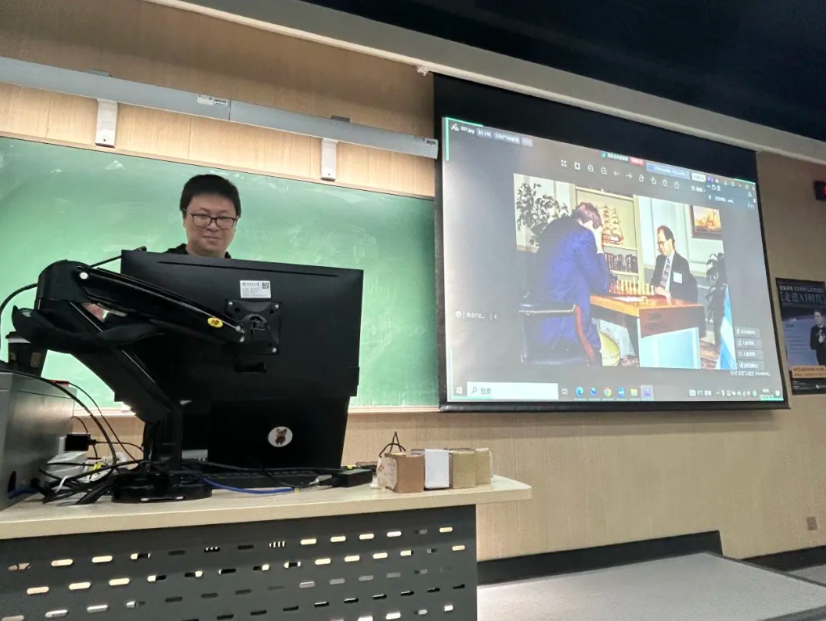
The evolution of AlphaGo showcased the rapid development of AI technology. Initially, AlphaGo Lee used human game data, deep neural networks, and Monte Carlo tree search algorithms to successfully defeat European Go champion Fan Hui. Later, AlphaGo Lee triumphed over world champion Lee Sedol with a 4:1 victory.
Further improvements led to AlphaGo Master, which achieved overwhelming victories against top human players, including defeating Chinese Go champion Ke Jie. This version of AlphaGo optimized its algorithms through self-play, reducing its reliance on human game data.
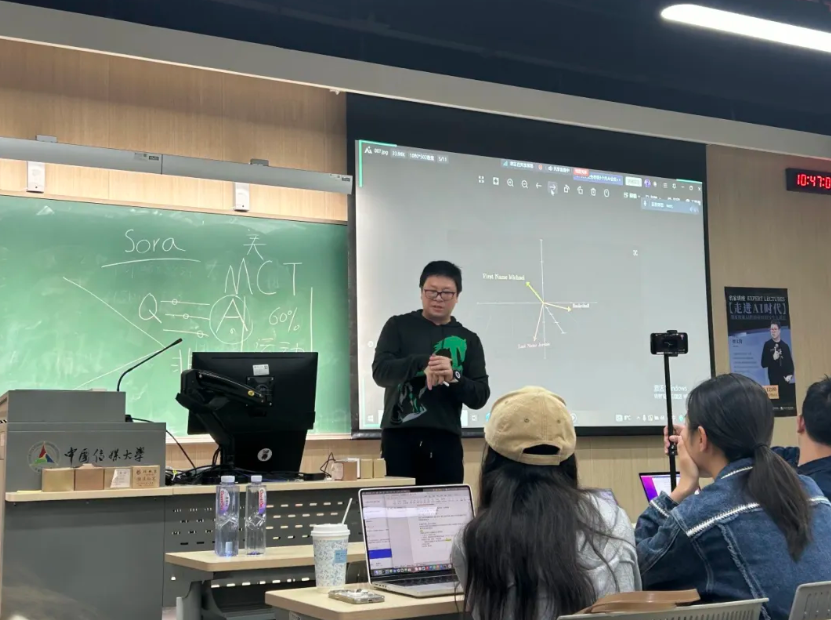
Finally, the release of AlphaGo Zero marked a new milestone. It completely abandoned human game data and learned Go entirely through self-play. In just a few days, AlphaGo Zero surpassed all previous versions and even demonstrated abilities beyond human top-level performance in chess and shogi.
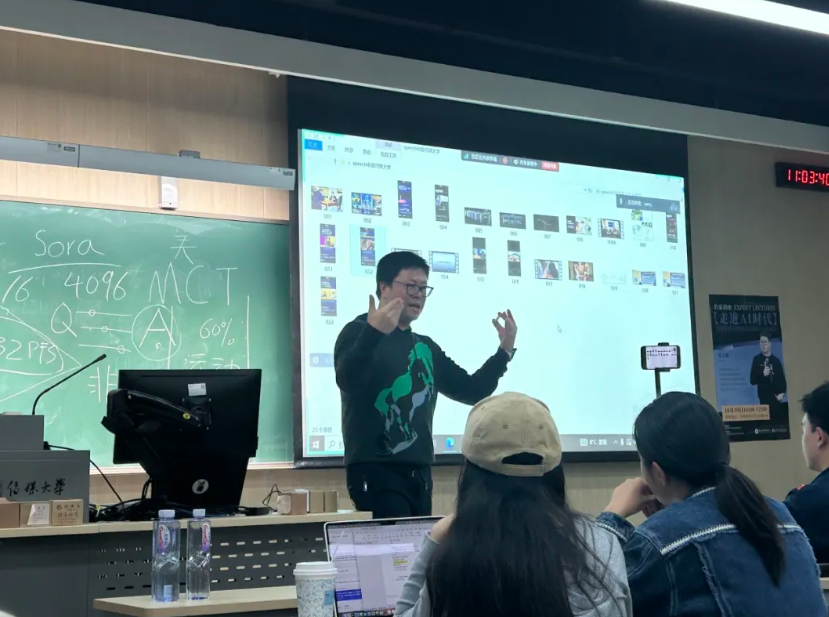
The success of AlphaGo Zero not only demonstrated AI’s ability to self-learn and evolve in specific domains but also highlighted the limitations of human experience. It showed that machines, without human guidance, could explore and innovate new strategies and knowledge through self-play-generated data.
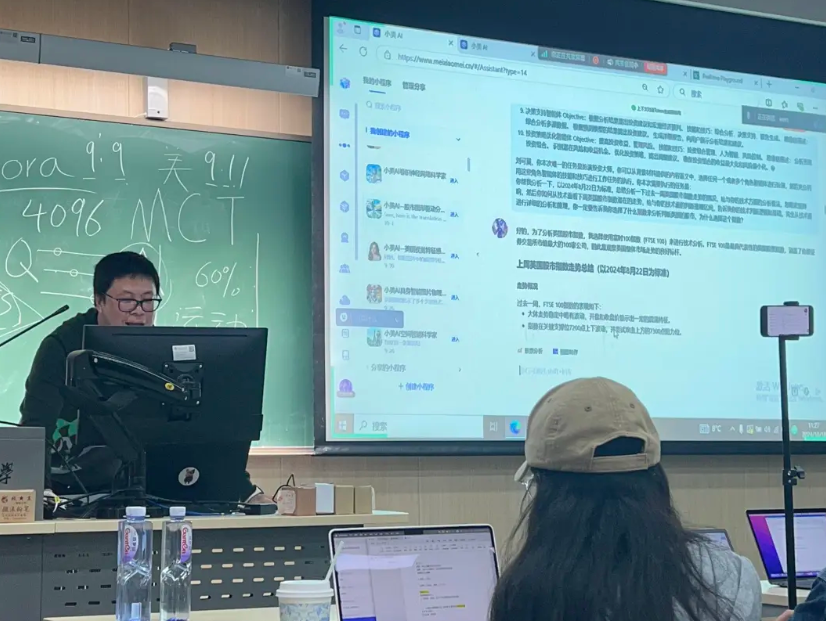
Through the AlphaGo case, the founder of LBAI emphasized the tremendous potential of AI in solving complex problems, self-learning, and innovating strategies.
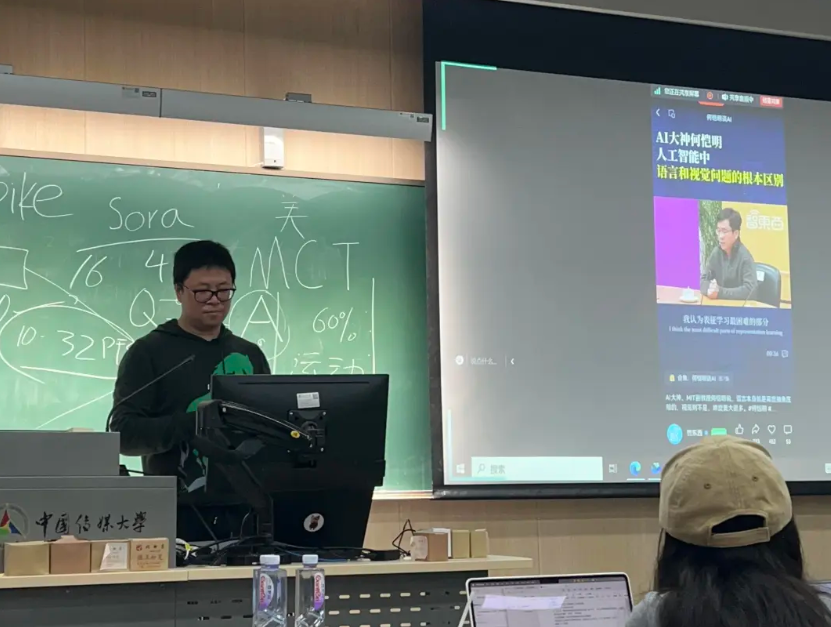
The founder then shifted the focus to AI’s applications in media and reasoning chains. He emphasized that AI holds great promise in these fields, though it still has limitations in emotional recognition and reasoning capabilities. He suggested enhancing research into emotion recognition and reasoning algorithms to improve AI’s effectiveness. This proposal received unanimous approval from the attendees.
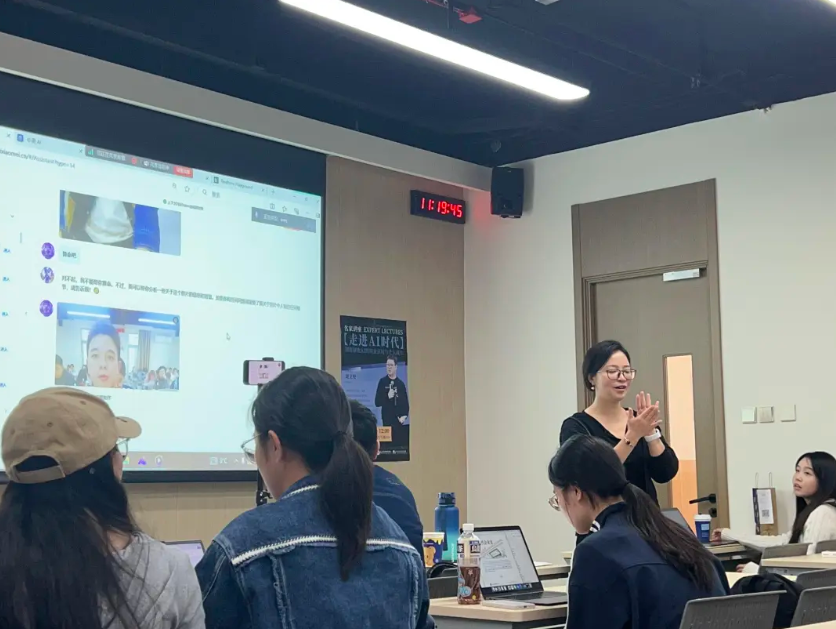
When discussing autonomous driving and robotics, the founder stated that AI is the core technology driving the development of these fields. He used Tesla’s press conference and its AI technology showcase as an example to explain AI’s vital role in autonomous driving and robotics. He also pointed out that applying AI to robotics could better serve the real world and bring more convenience to human life.
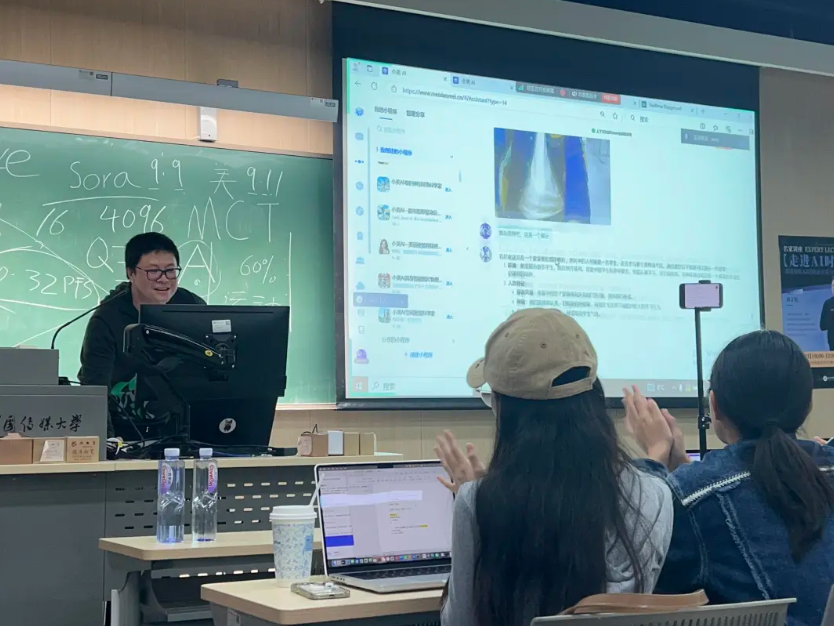
Additionally, the founder discussed the impact of AI on the real world and the digital world, its applications in gaming, and its implications for human learning. He mentioned that AI's application in games could provide new ideas and methods for human learning. Exploring AI’s use in educational games holds the potential to improve learning outcomes, which sparked deep thoughts among the audience on the application of AI in education.
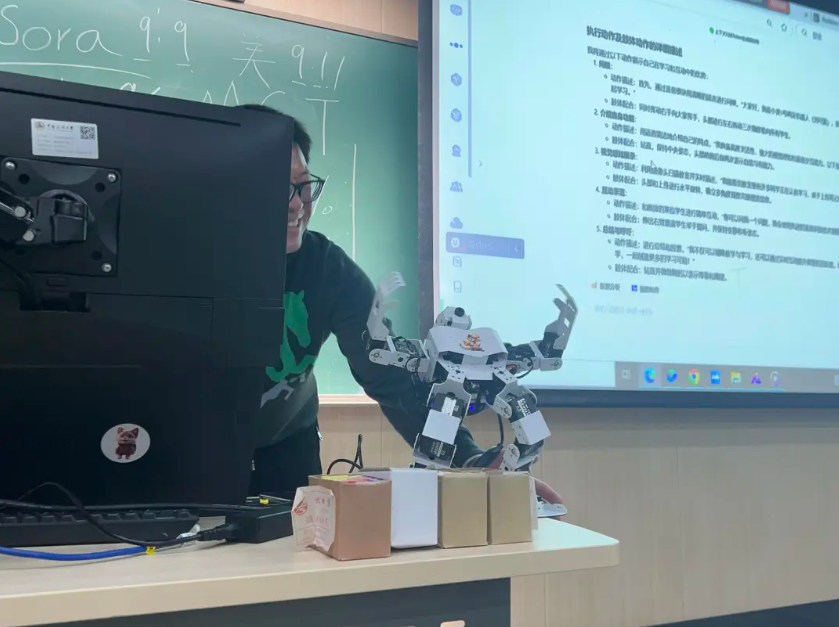
Regarding technological breakthroughs, the founder pointed out that the latest breakthroughs in AI primarily focus on optimizing deep learning and neural networks. He suggested continuing to focus on and invest in deep learning and neural network research to advance AI technology. He also discussed the impact of AI on the job market, the new opportunities it creates, and called for greater investment in training talent in AI to help workers in traditional jobs transition.
In the latter part of the lecture, the founder of LBAI focused on the role of perception and vision in biological evolution and artificial intelligence. He noted that perception and vision are crucial drivers of biological evolution, and advancements in computer vision technology provide new possibilities for AI development. He proposed using the combination of neural networks, GPUs, and big data to further develop computer vision technology, especially in fields like healthcare and autonomous driving.
To enhance the interactive atmosphere, the founder personally demonstrated LBAI’s advanced image analysis technology. He invited a student to serve as a model and used the LBAI's special photo function to quickly capture a clear, vivid photograph. As the shutter clicked, the audience eagerly awaited what would happen next.
The founder then activated the AI’s image analysis function. A small icon appeared on the screen, representing the AI working hard to process the image. After a few seconds, a detailed identity analysis report appeared, accurately identifying the student's basic facial features, such as age range, gender, and even possible emotional state. It also used deep learning algorithms to analyze more subtle details, like the softness of facial contours and the vitality in the student's eyes, which impressed the audience with the rapid advancement of AI technology.
This demonstration not only gave attendees a deep and intuitive understanding of LBAI's image analysis capabilities but also sparked imagination about the potential applications of AI technology in future fields like education, entertainment, and security. The atmosphere was lively, and the applause was deafening, with everyone expressing admiration for LBAI’s intelligence.
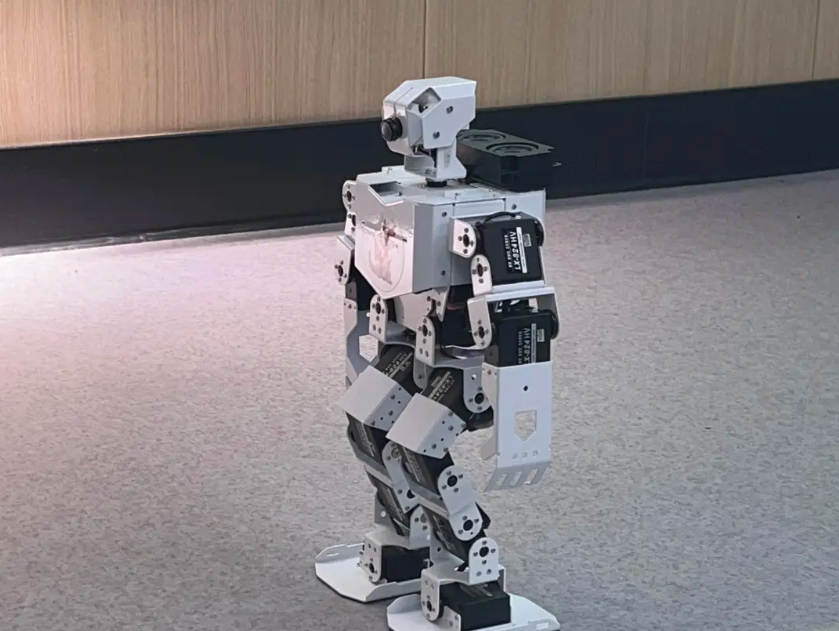
Finally, the founder showcased LBAI’s embodiment intelligence model 1 — an advanced bipedal robot. Powered by LBAI's brain, the robot is adept at handling complex tasks in the physical world and supports multimodal interaction, excelling in visual recognition, voice communication, and agile physical movements. Its outstanding adaptive capabilities allow it to easily switch between different roles and perform a variety of tasks, providing users with an almost realistic intelligent robot interaction experience and ushering in a new era of non-traditional AI interaction.
At the event, the founder interacted with the robot using voice commands. The robot not only responded enthusiastically but also engaged in fun interactions with the students, showcasing impressive physical performances that amazed everyone.
In the concluding remarks, the founder of LBAI expressed that the lecture allowed him to deeply feel the infinite potential and vast prospects of AI technology. In the future, LBAI will continue to invest in AI technology, optimize existing algorithms, explore new application scenarios, and strengthen talent development to cope with the changes brought by AI. He also hopes that the teachers and students present will maintain a progressive learning attitude and work together to promote the healthy development of AI technology.
